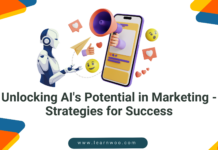Last updated - November 29, 2023
Introduction
In today’s digital era, where almost every query starts with a search engine, the significance of Search Engine Optimization (SEO) cannot be overstated. SEO is the lifeblood that fuels online visibility, driving organic traffic to websites and ensuring they get noticed in the vast expanse of the internet. As the digital landscape becomes more saturated, achieving a spot on the coveted first page of search results is both a challenge and a necessity for businesses and content creators.
WordPress, as one of the world’s leading content management systems, is at the forefront of this SEO battlefield. Millions of websites, ranging from personal blogs to e-commerce giants, rely on WordPress to power their online presence. Naturally, optimizing these websites for search engines is a top priority. But as the intricacies of SEO grow, so does the need for smarter, more efficient tools to manage them.
Enter Artificial Intelligence (AI). With its unparalleled ability to analyze vast datasets, recognize patterns, and automate complex tasks, AI is revolutionizing the way we approach SEO. For WordPress users, this means a suite of intelligent tools at their disposal, designed to optimize their websites in real-time.
Imagine, for instance, creating a detailed blog post and having an AI tool instantly convert text to presentation format, ensuring that your content caters to both readers and viewers. Such is the power and potential of integrating AI with SEO strategies on WordPress.
Keyword Research and Optimization
In the vast realm of digital marketing, keyword research stands as a cornerstone. It’s the compass that guides your content to its intended audience, ensuring it resonates and ranks. However, with the dynamic nature of online trends and user behavior, traditional methods of keyword research can often feel like shooting arrows in the dark. Enter AI-driven keyword tools.
Introduction to AI-driven Keyword Tools
Imagine a tool, backed by powerful algorithms, tirelessly scanning and analyzing the vast expanse of online data to unearth golden keyword opportunities.
These aren’t just any keywords, but those specifically tailored to your niche, audience, and objectives. AI-driven keyword tools leverage massive amounts of data, blending it with advanced machine learning to produce not just a list of keywords, but a strategic roadmap for content creators.
The beauty of these tools lies in their data-driven insights. While human analysis might get clouded by biases or overlook subtle trends, AI operates on pure, unadulterated data. It identifies patterns and correlations that might escape even the most seasoned SEO professionals, suggesting keywords that resonate with real-time search trends and user intent.
Content Optimization
But what’s a keyword without the content that embodies it? Here too, AI plays a pivotal role. Gone are the days when keyword stuffing could trick search engines. Today, it’s about creating valuable, relevant content that organically integrates these keywords. With AI at the helm, content optimization transforms from a manual, often tedious task to a streamlined process.
As content is crafted, AI tools can provide real-time feedback. They assess keyword density, suggest synonyms, or even recommend structural changes, ensuring the content aligns with SEO best practices and high-performing search trends.
The result? Content that not only resonates with the audience but also stands a higher chance of ranking prominently in search engine results.
In essence, the integration of AI in keyword research and content optimization is like having an expert SEO consultant by your side, guiding each step, and ensuring each word and phrase aligns with the ever-evolving digital landscape.
Image Optimization and Alt Text Generation


In the visually-driven realm of the web, images play a paramount role. However, their weight on websites, especially in content-rich platforms like WordPress, can be a double-edged sword. While they enhance user engagement, unoptimized images can lead to slower loading times, adversely affecting SEO and user experience.
Automated Image Compression
Enter AI-driven tools. These sophisticated platforms are designed with one goal in mind: delivering optimized images that maintain their quality. Traditional compression methods often compromise image clarity, leading to blurred or pixelated visuals.
AI, on the other hand, approaches the problem differently. Through intricate algorithms, it identifies and retains essential image data while eliminating redundancies.
The result? Images that load faster, consume less bandwidth, and yet appear as vivid as their original versions. For website owners, this means improved page speed, better user experience, and, ultimately, an SEO boost.
Alt Text Generation
But it’s not just about how images look; it’s also about how they’re understood by search engines and users with visual impairments. This is where alt text comes into play.
Alt text is a short description of an image, which helps search engines contextualize it and aids visually impaired users in understanding the content. Crafting the perfect alt text requires a blend of SEO knowledge and a clear understanding of the image.
However, with the vast number of images on websites, manually crafting alt text can be tedious. This is another area where AI shines. Through advanced image recognition and natural language processing, AI tools can auto-generate descriptive alt text.
The descriptions provided are not just accurate but also SEO-friendly, ensuring that images contribute to a website’s search engine ranking. For WordPress users, this automation not only saves time but also guarantees that images are both accessible and optimized for search engines.
Backlink Analysis and Recommendations
Backlinks are the backbone of any successful SEO strategy. Their quality and relevance can make or break your website’s search engine ranking. But monitoring them can be a tedious task, right? Enter AI.
Monitoring Backlink Health
Gone are the days when you had to manually sift through your backlinks to determine their quality. Today’s AI-driven tools offer a more efficient approach. They tirelessly scan and evaluate every backlink pointing to your site, ensuring that they’re not just numerous, but also beneficial.
Also, these tools assess the health and quality of each backlink, alerting you to any potential issues like toxic links or broken connections. In essence, they act as a vigilant guard, ensuring that your backlink profile remains robust and clean.
Identifying Potential Link-building Opportunities
But AI doesn’t stop at monitoring; it goes a step further by being proactive. By analyzing vast amounts of data from the web, AI tools can pinpoint high-quality sites that align with your content’s relevance and authority.
This means they can suggest potential websites or platforms where gaining a backlink would be beneficial, streamlining your outreach efforts and ensuring that every link opportunity is one worth pursuing.
On-page SEO Audits and Fixes


One of the primary concerns for any website owner is ensuring their content is both user-friendly and optimized for search engines. Manual checks, while necessary, can be time-consuming and might overlook certain aspects. Enter the world of AI to save the day.
Automated Site Audits
Have you ever wished for a diligent assistant that continuously monitors your site, ensuring it’s up to par with SEO standards? AI tools have made this possible. Integrated within the WordPress ecosystem, these AI-driven tools offer periodic scans of your entire site. They diligently check for broken links, outdated content, missing meta descriptions, or any other SEO elements that might be amiss.
No longer do you need to wait for monthly reviews or hire external agencies for routine checks. Your AI assistant works round-the-clock, guaranteeing that your website adheres to the ever-evolving SEO best practices.
Real-time SEO Recommendations
But what if you could receive guidance while creating content? Picture this: As you draft a new blog post or edit an existing page, there’s a system in place that offers real-time feedback. This isn’t a pipe dream; it’s the reality of modern AI-driven SEO tools.
These systems analyze your content as it’s crafted, pointing out areas for improvement, whether it’s a more effective keyword placement, optimized image usage, or improved content structure. It’s like having an SEO expert looking over your shoulder, guiding you every step of the way, ensuring that each piece you publish is primed for maximum visibility.
The integration of AI in on-page SEO tasks on WordPress has fundamentally transformed the way we approach content optimization. No longer is it about post-publication tweaks or periodic revamps. The future is proactive, real-time, and immensely efficient, ensuring that WordPress sites are not just search-engine ready, but consistently delivering peak performance.
User Behavior Prediction and Content Suggestions
In the vast landscape of the internet, tailoring content to individual preferences has become paramount. The old “one-size-fits-all” model is no longer sufficient. This is where the marvel of AI steps in, especially when we talk about predicting user behavior and content suggestions.
Predicting User Interests
Have you ever wondered how certain platforms seem to “know” what you’re interested in before you do? Behind the scenes, sophisticated AI algorithms work tirelessly, analyzing the way users interact online. Whether it’s the articles you read, the videos you watch, or the products you browse, AI captures these patterns.
By processing this massive amount of data, AI tools can accurately predict which topics or items might pique a user’s interest next. For content creators, this is a gold mine. It means they can produce content that’s not just relevant but also timely, hitting the sweet spot of a user’s current interests and preferences.
Content Delivery Optimization
But, what good is perfectly tailored content if it doesn’t reach the user at the right moment? This brings us to the next wonder of AI: content delivery optimization. AI doesn’t just stop at predicting what you might like; it goes a step further by determining the best way to serve that content to you.
For instance, if a user frequently engages with short blog posts during their lunch break but delves into longer reads on weekends, AI tools will recognize this pattern. This ensures that bite-sized content gets delivered during the weekdays, while in-depth articles are saved for leisurely weekend reads.
The result? A significantly improved user experience leads to higher engagement rates and retention. After all, when content feels like it’s been handpicked just for you, it’s hard to resist.
In essence, AI’s role in predicting user behavior and optimizing content delivery is reshaping the way we consume digital content. It’s no longer about sheer volume; it’s about precision, relevance, and timing.
Integrating AI SEO Tools with WordPress


WordPress, renowned for its user-friendly interface and flexibility, remains a preferred platform for many website owners. But to fully harness its potential, especially in terms of SEO, integrating AI tools can be a game-changer.
How, then, should one go about this integration, and which tools stand out in the vast WordPress ecosystem?
Popular AI-driven SEO Plugins for WordPress
Navigating the plethora of plugins available can be daunting. Yet, among the many, a few AI-driven SEO tools have consistently shown superior results:
- Neural SEO: Using deep learning, this plugin offers content analysis in real-time, suggesting immediate changes for optimization.
- AI SEO Booster: Tailored for beginners and experts alike, it uses artificial intelligence to streamline keyword research and offers intuitive content recommendations.
- SmartLinker: Beyond conventional interlinking, it utilizes AI to identify and suggest the most relevant internal links for your content, enhancing user experience and SEO simultaneously.
These tools, backed by advanced algorithms, bring a touch of automation and precision to SEO tasks, ensuring that WordPress sites remain competitive in search rankings.
Best Practices for Integration
However, merely having a powerful tool isn’t enough; integrating it correctly is equally vital. Here are some guidelines:
- Compatibility Check: Always ensure that the chosen AI SEO plugin is compatible with your WordPress version and other plugins.
- Regular Backups: Before installing any new plugin, make a backup of your site. AI tools are sophisticated, and on rare occasions, conflicts might arise.
- Monitor Site Speed: AI tools, given their complexity, might impact site performance. Regularly check site speed and ensure it remains optimal.
- Stay Updated: AI evolves rapidly. Make sure to update your AI plugins regularly to benefit from the latest features and improvements.
In essence, while AI-driven tools can significantly enhance the SEO prowess of a WordPress site, their integration demands a touch of care and attention to detail. Done right, the synergy between WordPress and AI can elevate your site’s visibility to new heights.
Conclusion
The digital landscape is continuously evolving, with innovations pushing boundaries and redefining how businesses operate online. A standout in this wave of change has been the application of Artificial Intelligence (AI) in various fields.
Particularly for WordPress sites, AI’s introduction into the realm of Search Engine Optimization (SEO) has unlocked unprecedented efficiency and accuracy.
As we’ve delved deeper into the world of AI and SEO, it’s clear that their fusion is more than just a fleeting trend. AI doesn’t merely simplify SEO tasks for WordPress; it revolutionizes them.
From keyword optimization and image adjustments to intricate analyses of backlinks, AI systems can automate, accelerate, and enhance processes that once demanded considerable time and expertise. The outcomes? Improved site rankings, greater visibility, and, crucially, an enhanced user experience.
But what’s next? The confluence of AI and SEO is still in its relative infancy. As algorithms become smarter and more adaptable, website owners and developers can anticipate even more intuitive tools and strategies.
These advancements might include predictive content creation, further personalized user experiences, and perhaps real-time SEO adjustments in response to shifting online behaviors.
For WordPress enthusiasts, the horizon looks promising. By embracing the AI-driven shift, they’re not just future-proofing their sites; they’re positioning themselves at the forefront of an SEO evolution, ready to harness every emerging opportunity.
In a world where staying ahead of the curve is paramount, integrating AI into SEO practices is no longer a luxury — it’s fast becoming a necessity.











